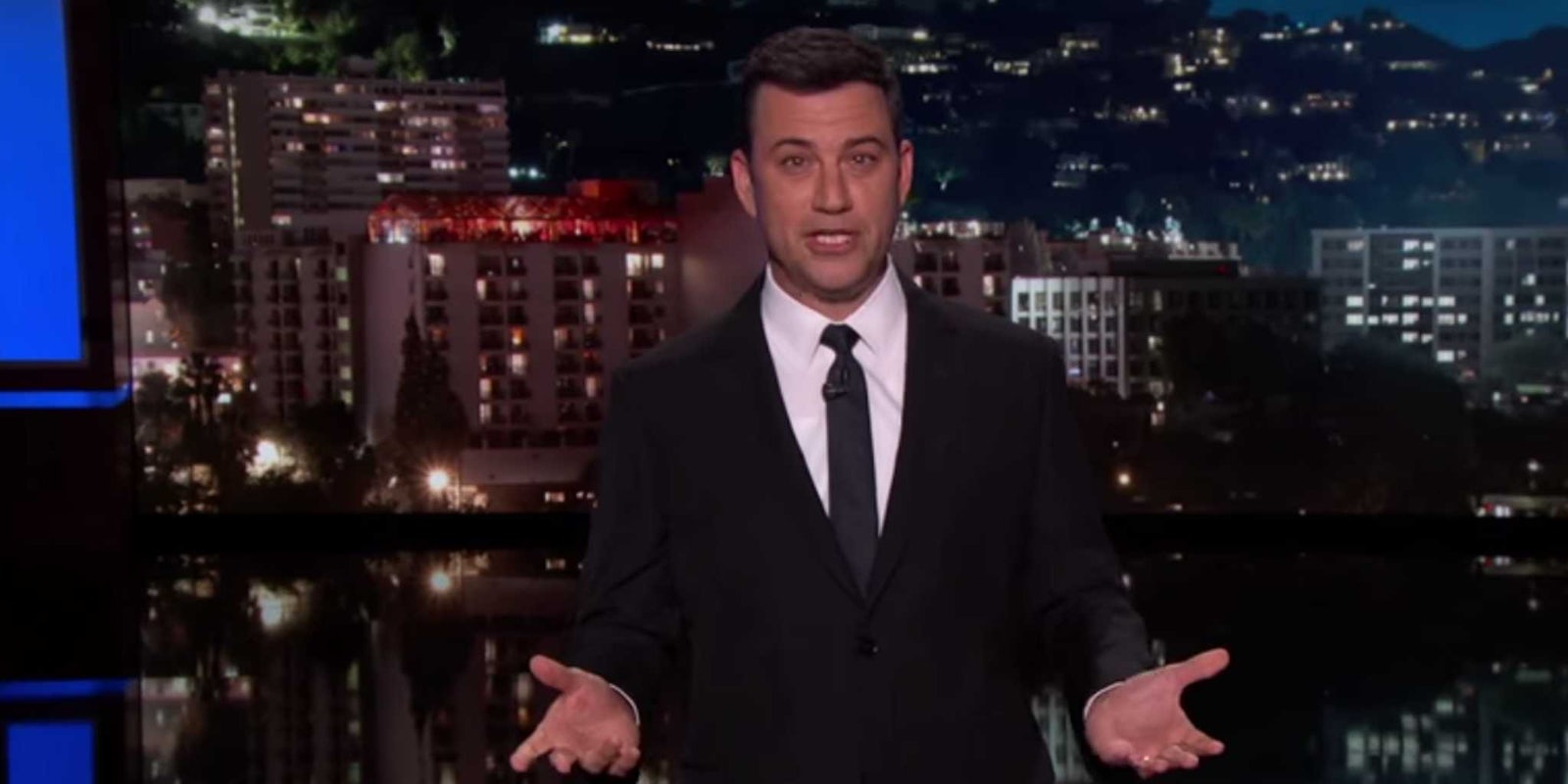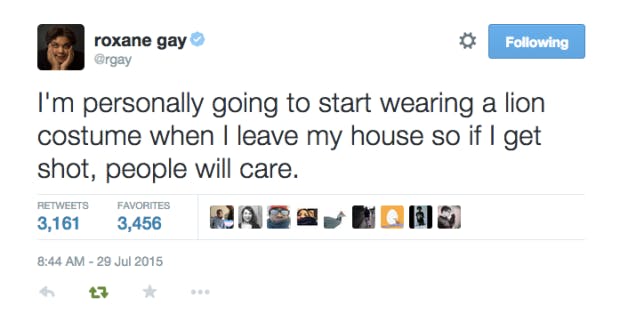Cecil, a very beloved lion who lived in Zimbabwe, was allegedly killed by an American dentist named Walter Palmer.
I will never understand hunting for sport, or why someone would want to kill a lion, which is apparently such an easy thing to do that it’s not really badass at all. It’s an all-around sad story. No one wants lions, or any endangered species, to be killed just for fun.
But black people like myself and many others can’t help but give a side eye to those who are enraged by Cecil’s death, when they’ve said almost nothing about police brutality deaths. It’s not necessary to choose one or the other. But if you care more about a lion than one of your fellow human beings, there’s something wrong.
There are clear differences in how we react to a black person being killed vs. an animal being killed.
1) When black people die, #AllLivesMatter
If all lives mattered, then African Americans, Native Americans, and Latino Americans wouldn’t be killed by police at alarming rates. In theory, all lives matter. In reality, white lives matter the most.
But when Cecil died, no one (except vegans) said #AllAnimalsMatter
Everyone is pretty focused on this one lion. Even though other species, such as giraffes, are close to extinction.
Are you serious?? #AllAnimalsMatter??? I can’t believe this…smh
— Raymond Santana (@santanaraymond) July 31, 2015
2) When black people die, celebrities keep silent
This excludes some black celebrities (and a handful of non-black ones), for obvious reasons.
But when animals die, celebrities rally
On Tuesday night, Jimmy Kimmel got emotional when talking about Cecil. Ricky Martin, Debra Messing, Sharon Osbourne and others have taken to Twitter to call for justice.
Should it be a celebrity’s responsibility to use their position to advocate for social causes? I would say yes, but I think it’s a very debatable question, and there are certainly acceptable reasons for someone not using their fame for good.
3) When black people die, killers (usually) escape punishment and/or get public support
There are too many instances to cite here. Cops and vigilantes have gotten away with killing many black people, including Trayvon Martin, Eric Garner, Michael Brown, and Aiyana Stanley Jones. For many cops who shoot unarmed people of any race, the worst punishment they might get is paid administrative leave. Like Darren Wilson, they might raise hundreds of thousands in donations from supporters.
But when animals die, the Internet is hungry for justice
We’re pretty unforgiving when people kill certain domestic or wild animals. After a photo of Rebecca Francis posing next to a dead giraffe went viral in April, she received death threats. I doubt anyone will be setting up a GoFundMe page for her or Palmer anytime soon.
What must’ve happened to you in your life to make you want to kill a beautiful animal & then lie next to it smiling? pic.twitter.com/DyYw1T5ck2
— Ricky Gervais (@rickygervais) April 13, 2015
There is a certain population that tends to escape punishment, and that would be police officers, whether they kill civilian dogs or their own police dogs.
4) When black people die or get abused, it’s justified
Sandra Bland was “rude”—and could have used her cigarette as a weapon, as Fox News’ Elizabeth Hasselbeck argued. Samuel DuBose should have had his license with him. Freddie Gray shouldn’t have started running. Trayvon Martin looked too suspicious with his hoodie.
https://twitter.com/enomaowens/status/626478123186458624
But when animals die or get abused, there is no justification
I haven’t heard anyone blaming Cecil for walking out of Hwange National Park, a protected area where it is illegal to hunt.
5) When black people die, the reaction is too quick and too angry
Black people are told to refrain from jumping to conclusions, to ignore that systemic racism has to do with these fatal shootings, to curb our emotions, and to stop protesting. We’re basically told to shut up.
But when animals die, the response is instantaneous
I have yet to hear anyone say that we should wait until Walter Palmer’s trial to make conclusions, that people are not justified in their anger, or that people are making too many assumptions about Palmer.
6) When black people die, those responsible say: “I made the right decision at the time”
Killing black people is justified by making it seem as though the circumstances left them no other choice. They were just doing their job and/or acting in self defense. George Zimmerman said that killing Trayvon Martin was “God’s plan” and that he wouldn’t have done anything differently.
But when animals die, those responsible say: “I’m sorry”
Palmer has already apologized, at least for killing Cecil because he was beloved. Not that he’d have an issue with killing any other lion.
I presume that one of the reasons why people can’t get behind #BlackLivesMatter is that it’s too political and controversial. On the other hand, publicly standing up for animal rights isn’t very brave, considering that almost no one is going to disagree with the idea that lions shouldn’t be hunted or that dogfighting is despicable. You aren’t going to get many haters by advocating for animal rights, which is probably why PETA has so many celebrity spokespeople.
The fact that animal rights is an easy cause to promote doesn’t make it any less important of a cause. But we do have to ask ourselves why animal rights is an acceptable cause—while #BlackLivesMatter and the murder of fellow human beings is too controversial.
Perhaps it’s because advocating for black lives would mean that some people would have to accept that racism still exists, they benefit from privilege, and anti-racism seeks to dismantle systems that create that privilege. It’s just so much easier to advocate for a cause that does not question or challenge their status in society. So, why not animals? They’re adorable, everyone loves them, and advocating for them isn’t necessarily threatening to the status quo.
We can be outraged about hunting for sport and the deaths of people of color at the same time. Some people might even argue that animal lives mean just as much as black lives; that’s fine. But when the death of black people is either too political or controversial to talk about, or not important enough for most white people to care about, while animal deaths get widespread outrage, then it appears that black lives matter less.
If that’s the case, does anyone know where to get a lion costume in a size 14?
Keziyah Lewis is a feminist and bisexual writer from Florida. She currently lives in Madrid, as she recovers from several years of non-profit work. You can find her on Twitter or on her travel blog.
Photo via Jimmy Kimmel Live/YouTube



